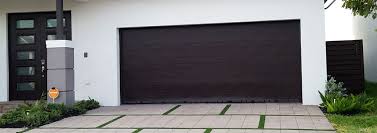Garage Door Repair Southlake TX keypads are electronic devices that provide convenience and security for homeowners. While they are designed to withstand regular use and harsh weather conditions, like any electronic device, they can experience issues over time.

In this article, we will explore the factors that can contribute to the deterioration of garage door keypads and offer some troubleshooting tips.
- Wear and Tear: Garage door keypads are often exposed to the elements, such as rain, snow, and extreme temperatures. Over time, this exposure can cause the keypad’s components to degrade, leading to malfunctions or complete failure. Additionally, frequent pressing of the buttons can cause mechanical wear, making the keypad less responsive.
- Battery Life: Most garage door keypads are powered by batteries. If the keypad stops working, the first thing to check is the battery. Over time, batteries can lose their charge or corrode, rendering the keypad inoperable. Regularly replacing the batteries can help prevent this issue.
- Moisture and Humidity: Excessive moisture or humidity can damage the internal circuitry of the keypad. Water seepage can cause short circuits and corrosion, resulting in malfunctioning buttons or a completely unresponsive keypad. It is important to ensure that the keypad is properly sealed and protected from moisture.
- Electrical Surges: Power surges, often caused by lightning strikes or faulty electrical wiring, can damage the sensitive components of the garage door keypad. These surges can overload the keypad’s circuitry, leading to erratic behavior or permanent damage. Using surge protectors or unplugging the keypad during storms can help mitigate this risk.
- Environmental Factors: Garages can be dusty or filled with debris, and these particles can accumulate inside the keypad over time. Dust and debris can obstruct the buttons or interfere with the internal mechanisms, causing the keypad to become unresponsive. Regular cleaning and maintenance can help prevent these issues.
- Faulty Wiring or Connections: Sometimes, the problem may not lie with the keypad itself but with the wiring or connections. Loose or damaged wires can disrupt the flow of electricity, preventing the keypad from functioning correctly. Inspecting the wiring and connections periodically can identify and resolve such issues.
- Age and Obsolescence: Like any technology, garage door keypads can become outdated as newer models with advanced features become available. Older keypads may lack compatibility with modern garage door openers or suffer from discontinued manufacturer support. In such cases, replacing the keypad with a newer model may be the best solution.
Troubleshooting Tips: If your garage door keypad is experiencing issues, here are some troubleshooting tips before considering a replacement:
- Check the batteries and replace them if necessary.
- Clean the keypad and ensure that there is no debris obstructing the buttons.
- Inspect the wiring and connections for any loose or damaged components.
- Reset the keypad according to the manufacturer’s instructions.
- Consult the keypad’s user manual or the manufacturer’s website for specific troubleshooting steps.
In conclusion, Garage Door Repair Southlake TX keypads can go bad over time due to various factors, including wear and tear, battery issues, moisture, electrical surges, environmental factors, faulty wiring, or obsolescence. Regular maintenance, proper care, and timely troubleshooting can help prolong the lifespan of a garage door keypad. However, if the issues persist or the keypad becomes obsolete, replacing it with a newer model may be the most viable solution to ensure convenience and security for your garage.
Southlake Automatic Gates LLC
100 N Carroll Ave, Southlake, TX 76092, United States
1-817-631-4158
